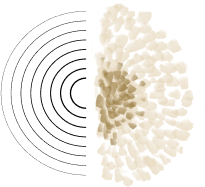

As a sophomore studying electrical engineering and computer science at the University of California Berkeley, Gen Z is under as much pressure to be the “best” version of themselves academically, professionally, and socially as the future of work (and financial stability) is becoming more amorphous and less defined. According to a survey conducted by media company University Primetime, Berkeley has been ranked “#1 in the top 50 institutions with the most stressed-out students and self-reported depression.” The unfortunate truth is that this sprint to success and toxic culture of constant comparison is unlikely to lessen, in universities and beyond, and that students often neglect the most core part of themselves--their mental health and well-being. According to Berkeley public policy studies from Richard Scheffler, Ph.D. and his team, this generation is the most anxious generation yet with the “overall rate of anxiety rising 48% from 2008 to 2014,” and what is driving the spike in anxiety is “poor mental health.”
I went out and spoke to my peers to learn about their perspectives on mental health and their journeys to achieve this balance and was surprised to hear this common thread: growing up, they were not taught to prioritize, or often even consider, mental health.
Academics and success are my parents’ number one goal for me. They always tell me that I have the power to control my own mood, which makes it really difficult for me to accept the fact that mental health is more than being sad for a day and then snapping out of it.
- UC Berkeley Sophomore studying Political Science
Especially among peers whose parents are immigrants, the priorities were clear: success, academically and professionally, came first. Even if that may mean compromising your mental and emotional health.
Another student, who grew up in Kuwait, said:
Toxic masculinity was such a big thing for me growing up. Which definitely made -- and still makes -- it hard for me to open up, kinda due to a fear that people around me will think I'm weak and avoid me if I do. My attitude towards other people has changed a lot and for the better--I genuinely try to encourage and help people around me who open up with their issues. I’m still working on doing that on a personal level.
Over and over, I heard about generational and cultural gaps enforcing the sentiment that “dealing with your problems by yourself makes you strong,” rather than the mindset of “seeking help and being vulnerable makes you strong” that we need as a society. Those students that I talked to had to retrain themselves to view vulnerability as a strength, after years of their communities drilling into them just the opposite.
How did they do this?
For a lot of students, the newfound independence of being away from home and on a college campus was that first step. Being surrounded by new people with different values and away from direct parental pressures, students were able to learn more about themselves and delve deeper into understanding their true values and motivations. As a result, students were also able to be more intentional about how they care for their mental health given widespread education on the importance thereof on university campuses; whether it was journaling daily, taking up meditation and yoga, or even just making sure they spent some time doing what they love, from cooking to dancing to playing with their dog. The biggest impact on individual perspectives was realizing that vulnerability with their friends actually helped them build deeper, more meaningful relationships rather than scaring people away as some initially feared.
All of us can be catalysts, initiating those vulnerable conversations, spreading awareness, and sharing resources with the people around you -- but that means working from the inside out, honestly evaluating your own priorities and relationship with mental health, and being intentional about caring for your mental health daily. This is exactly why I am so excited to be interning for Kintsugi this summer, a smart voice journaling platform for mental health, measuring voice biomarkers for well-being. I have the opportunity to learn why it’s even more important for people to feel supported by their communities and feeling able to talk openly about their struggles without judgement. Dedicating even a few minutes a day to prioritizing your own mental health goals can have a big impact on your stress and anxiety levels, and I’m proud to be a contributor to this new area of research.
Join our mailing list for regular updates from Kintsugi



